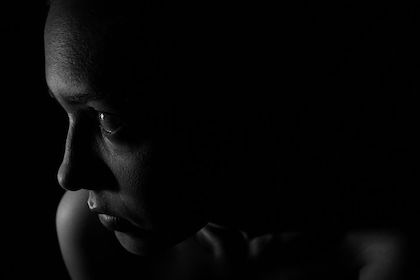Suddenly, Your Peace Is Gone. What Happened?
By Dr. Margaret PaulSeptember 17, 2018
Are you aware of what triggers your anxiety, depression, anger or hurt? By becoming aware of your triggers, you can learn to stay centered in your inner peace.
 Has this ever happened to you? You're in a happy and peaceful state when suddenly, in a second, you’re feeling upset, hurt, angry, sad, anxious or depressed. Instead of being in your peaceful loving adult state, connected with your guidance, you are in your ego wounded self, seemingly stuck there, having to climb your way out once again.
Has this ever happened to you? You're in a happy and peaceful state when suddenly, in a second, you’re feeling upset, hurt, angry, sad, anxious or depressed. Instead of being in your peaceful loving adult state, connected with your guidance, you are in your ego wounded self, seemingly stuck there, having to climb your way out once again.
What Actually Happened That Robbed You Of Your Peace?
I have discovered that both thoughts and actions can trigger the wounded self - our OWN thoughts and actions. While it's always easy to believe that it is another's actions or outside events that trigger our wounded selves, this isn't actually the case.
Let's take an example. You and your partner spent a lovely day together hiking - something you both enjoy doing. You got along great the whole day and you are feeling happy and peaceful on the ride home. You get home and your partner discovers that his or her credit card is missing. You had used the credit card and then remembered giving it back to your partner, but your partner doesn't remember getting it from you. He or she is suddenly really angry at you, blaming you for the loss of the credit card.
It is at this point that you either get triggered into your wounded self or stay connected as a loving adult. If you get triggered into your wounded self, then maybe you scurry around looking for the credit card. Or maybe you yell back, trying to get your partner to stop yelling. Maybe you get parental, trying to talk him or her out of being angry. Maybe you apologize, even if you do not believe that it was you who lost the card. Or maybe you withdraw in anger, muttering to yourself about how your partner always ruins things.
Abandoning Yourself
The problem is that in your wounded self, you do not attend to how it feels inside to be yelled at and blamed and you do not take loving action on your own behalf. You completely abandon yourself to try to control your partner and avoid responsibility for your feelings.
When you stay connected as a loving adult, you lovingly disengage from the conflict, waiting to deal with it until he or she calms down. You do not subject yourself to the verbal abuse, nor do you try to control it in any way. You simply attend to your own feelings and take loving action, getting yourself out of range while keeping your heart open. When you respond as a loving adult, you continue to feel happy and peaceful inside. Not easy, I know. It takes practice to not automatically start trying to control.
However, it’s not your partner’s unloving behavior that causes your loss of peace. It’s when you get triggered into your wounded self that you lose your own peace and joy.
What Triggers You Into Your Wounded Self?
-
Does another's wounded self trigger your wounded self? Does another's anger, blame, irrational behavior, withdrawal, or resistance, trigger you into your reactive behavior?
-
Do your own thoughts of loss trigger you into your anxiety - thoughts about loss of money, loss of love, loss of approval, loss of health, or thoughts of future hardship or rejection?
-
Does reading about challenging events or seeing them on TV, such as the stock market, gas prices, or violence, trigger the scary thoughts that plummet you into your anxiety or depression?
- Does actual loss - of a loved one, of money, of a job, of health - trigger the feelings of helplessness or loneliness that you avoid feeling with your addictive behavior?
It is so easy to believe that it is these situations that are triggering your wounded feelings, but in reality, it is your thoughts about not being okay - or that you can or should control someone or something - that are the real triggers.
I encourage you to start paying attention to what triggers you into your ego wounded self. By noticing your triggers, you can begin to respond differently, eventually learning to stay in your loving adult, regardless of what is happening.
Join Dr. Margaret Paul for her 30-Day at-home Course: "Love Yourself: An Inner Bonding Experience to Heal Anxiety, Depression, Shame, Addictions and Relationships."
Join IBVillage to connect with others and receive compassionate help and support for learning to love yourself.
 Send this article to a friend
Send this article to a friend  Print this article
Print this article  Bookmarked 0 time(s)
Bookmarked 0 time(s)
| Related Articles |
|---|
| Why Does The Mind Think Thoughts That Scare Us? |
| What Causes Embarrassment? |
| Moving Beyond Negative Emotions |
| Are You An Emotional Victim? |
Comments
| Author | Comment | Date |
|---|---|---|
| Join the Inner Bonding Community to add your comment to articles and see the comments of others... | ||

Daily Inspiration
The best way to influence others toward physical and emotional health is to become a role model of loving self-care.
By Dr. Margaret Paul

 Share with Del.icio.us
Share with Del.icio.us Share with Digg
Share with Digg






